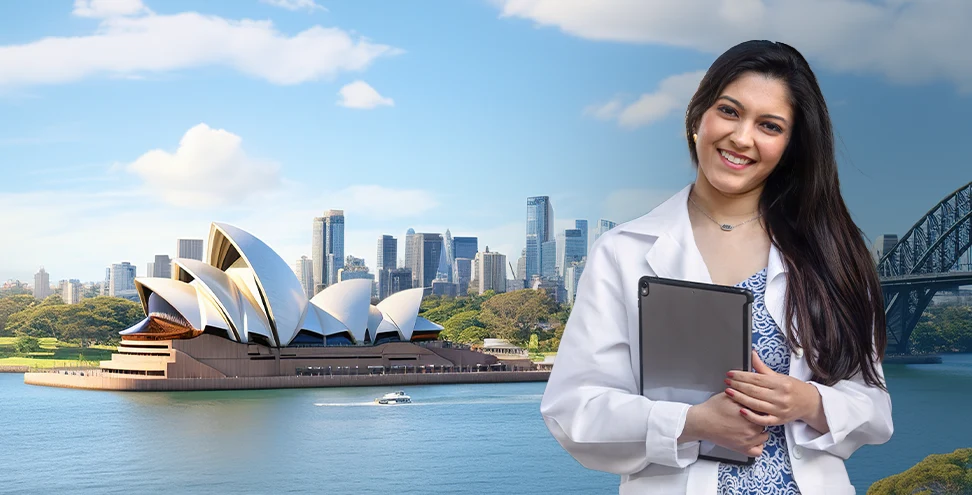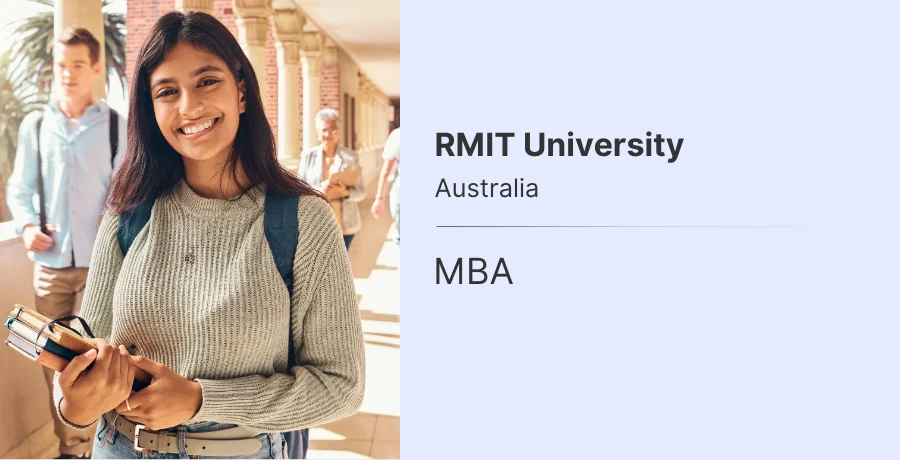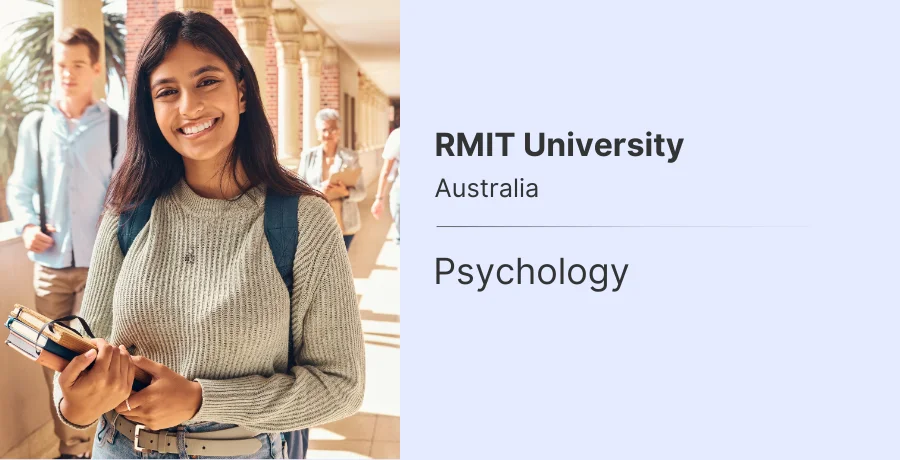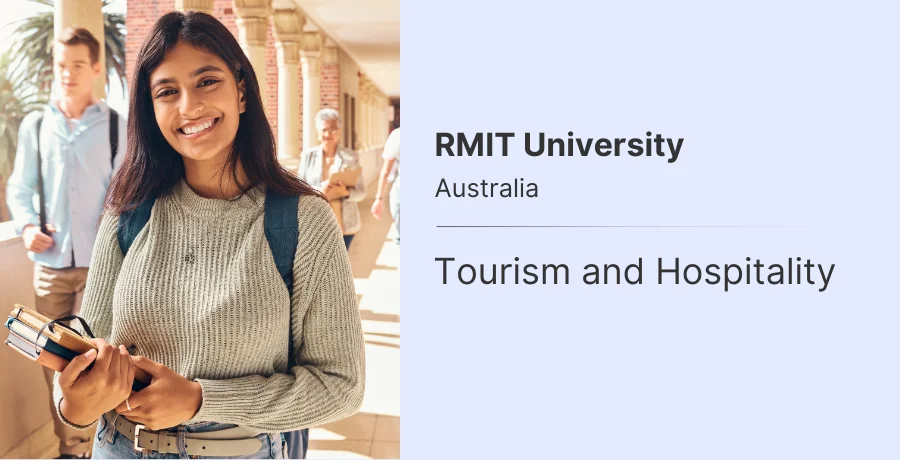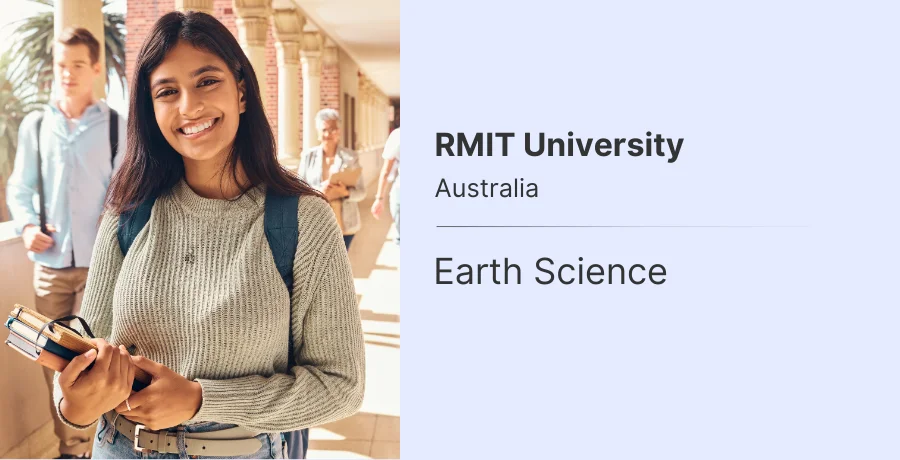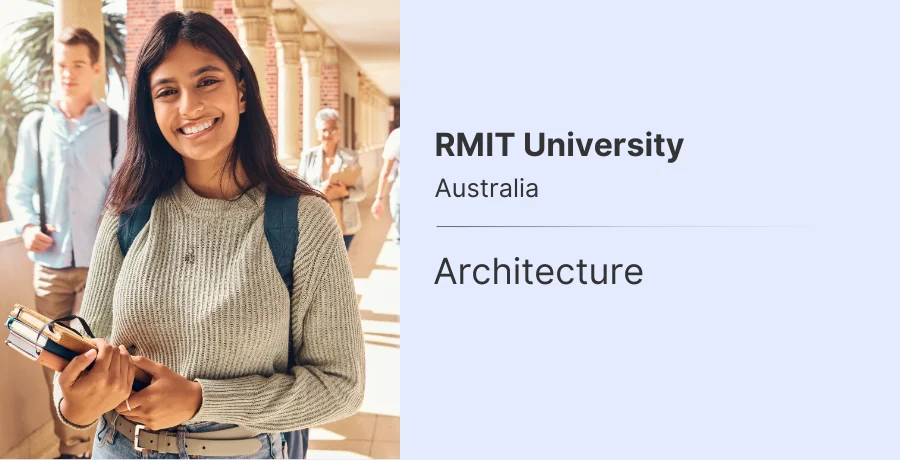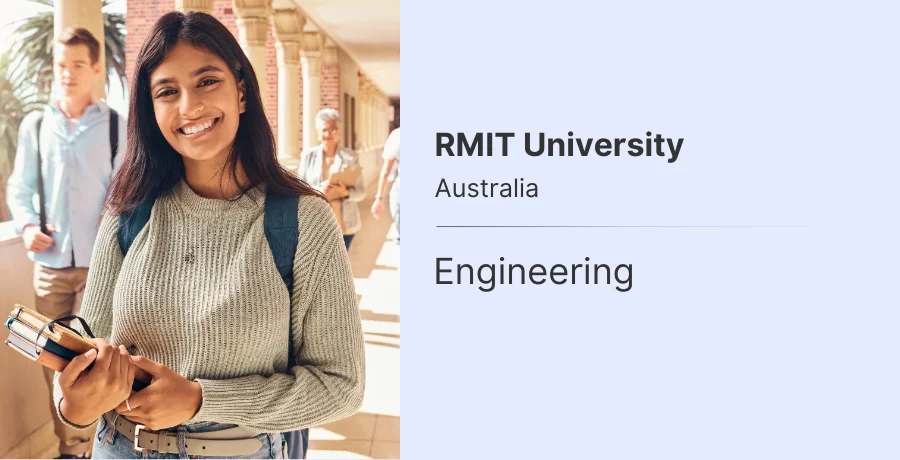Medicine at RMIT University Australia
Table of Contents
- Medicine at RMIT University Australia – Highlights
- Why Study Medicine at RMIT University Australia?
- RMIT University Medicine Rankings
- RMIT University Medicine Acceptance Rate
- Popular Medicine Courses at RMIT University Australia
- Admission Requirements to Medicine at RMIT University Australia
- Cost of Medicine at RMIT University Australia for Indian Students
- Scholarships at RMIT University Australia
- Job Prospects for Medicine in Australia
- FAQs – Medicine at RMIT University Australia
Medicine at RMIT University Australia – Highlights
RMIT University in Australia offers an outstanding Medicine program that is designed to prepare students for a successful career in the medical field. Nestled in the vibrant city of Melbourne, the university provides a conducive environment for learning and growth. The course is comprehensive, covering various aspects of medicine, ensuring that graduates are well-prepared to meet the challenges of the healthcare industry.
The Medicine program at RMIT University is known for its innovative teaching methods and state-of-the-art facilities. Students have access to modern laboratories, research centers, and clinical training opportunities that are integral to their education. The university's strong ties with leading hospitals and healthcare institutions provide students with practical experience and networking opportunities.
Why Study Medicine at RMIT University Australia?
Studying Medicine at RMIT University Australia offers numerous benefits. The university is renowned for its high academic standards and commitment to research and innovation. Students are taught by leading experts in the field who bring a wealth of knowledge and experience to the classroom. Additionally, the university's location in Melbourne, a city known for its cultural diversity and vibrant lifestyle, provides an enriching experience for students both academically and socially.
- Innovative curriculum that integrates theory with practical experience.
- Access to cutting-edge medical facilities and research opportunities.
- Strong network with top healthcare institutions for internships and placements.
- Supportive learning environment with access to extensive resources and support services.
RMIT University Medicine Rankings
| Ranking | Source |
|---|---|
| Top 100 | US News and World Report |
| Top 150 | QS World University Rankings |
| Top 200 | THE Rankings |
| Top 250 | ARWU Rankings |
RMIT University Medicine Acceptance Rate
- The acceptance rate for Medicine at RMIT University is competitive, reflecting the high standards of the program.
- Applicants are advised to ensure they meet all entry requirements and present strong academic and extracurricular profiles.
Popular Medicine Courses at RMIT University Australia
- Bachelor of Medical Science: This course provides a strong foundation in medical science, preparing students for various careers in healthcare.
- Bachelor of Biomedical Science: Focuses on the biological and physiological aspects of health, leading to careers in research and clinical practice.
- Master of Medicine: An advanced program that delves deeper into medical research and clinical skills, ideal for those looking to specialize.
- Master of Public Health: Prepares students for leadership roles in public health, focusing on health promotion and disease prevention.
Medicine at RMIT Australia requirements
The requirements for studying medicine-related programs at RMIT University depend on the level of study, whether you’re pursuing a Bachelor of Laboratory Medicine or a Master of Laboratory Medicine. Here’s a detailed list of the general requirements:
Medicine at RMIT Requirements: Bachelor of Laboratory Medicine
Educational Qualifications:
- Completion of Australian Year 12 or an equivalent international qualification, with a strong focus on subjects like Biology, Chemistry, and Mathematics.
- Indian students must have completed 12th grade with a minimum60-70% scorein relevant subjects.
English Language Proficiency:
- IELTS (Academic): Overall score of 6.5, with no individual band below 6.0.
- TOEFL (IBT): Minimum score of 79, with specific sub-score requirements.
- PTE Academic: Minimum score of 58, with no communicative skill score below 50.
Additional Requirements:
- A statement of purpose explaining your interest in laboratory medicine and career goals.
- Interview: Some applicants may be required to participate in an interview as part of the selection process.
Visa Process
- Apply for a student visa (subclass 500) through the Australian Government Department of Home Affairs.
- Provide a Confirmation of Enrolment (CoE) from RMIT University.
- Meet the Genuine Temporary Entrant (GTE) requirement.
- Provide evidence of sufficient funds to cover tuition fees and living expenses.
Medicine at RMIT University Australia fees
The fees for studying Medicine-related courses at RMIT University are influenced by the level of study and student residency status:
1. Bachelor of Laboratory Medicine:
- International Students: The tuition fees for international students range from AUD 34,000 to AUD 38,000 per year.
- Domestic Students: For Australian students, fees are subsidized through Commonwealth Supported Places (CSP), with costs ranging from AUD 8,000 to AUD 10,000 annually.
2. Master of Laboratory Medicine:
- International Students: Tuition fees range between AUD 36,000 and AUD 42,000 per year, depending on the specific course load and duration.
- Domestic Students: For domestic students, the fees are significantly lower, generally ranging from AUD 10,000 to AUD 12,000 annually, thanks to government support.
In addition to tuition fees, students should also budget forother expenses like lab materials, textbooks, and living expenses, which are estimated to be around AUD 20,000 to AUD 25,000 per year, depending on lifestyle and accommodation choices in Melbourne.
Cost of Living: The cost of living in Melbourne can range from AUD 20,000 to AUD 25,000 per year, covering accommodation, food, transport, and other personal expenses.
| Expense | Annual Cost (AUD) |
|---|---|
| Tuition Fees | 30,000 - 45,000 |
| Living Expenses | 20,000 - 25,000 |
Scholarships at RMIT University Australia
RMIT University offers a range of scholarships to support international students in funding their studies.
- RMIT International Excellence Scholarship: Awarded to high-achieving students, providing up to 25% reduction in tuition fees.
- Australia Awards Scholarship: Funded by the Australian Government, offering full tuition coverage and living allowances.
Job Prospects for Medicine in Australia
Graduates of the Medicine program at RMIT University have excellent job prospects in Australia. The healthcare sector is growing, with a high demand for skilled professionals.
| Job Role | Average Salary (AUD) |
|---|---|
| General Practitioner | 100,000 - 150,000 |
| Medical Researcher | 80,000 - 120,000 |
| Public Health Administrator | 90,000 - 130,000 |
FAQs – Medicine at RMIT University Australia
- Can I work while studying Medicine at RMIT University?
Yes, international students can work part-time while studying, up to 20 hours per week during the semester and full-time during breaks.
- What are the advantages of studying Medicine at RMIT University?
The advantages include access to top-notch facilities, experienced faculty, and strong industry connections for practical training.
- What is the average salary for medical graduates from RMIT University?
The average salary for Medicine graduates ranges from AUD 80,000 to AUD 150,000, depending on the job role and experience.
- What is the duration of the Medicine program at RMIT University?
The duration varies by course, with undergraduate programs typically lasting 3-4 years and postgraduate programs 1-2 years.
- What exams are required for admission to the Medicine program?
Applicants may need to take the RMIT University Medicine entrance exam and meet English proficiency requirements through IELTS or TOEFL.
- What are some popular Medicine courses at RMIT University?
Popular courses include the Bachelor of Medical Science, Bachelor of Biomedical Science, Master of Medicine, and Master of Public Health.
